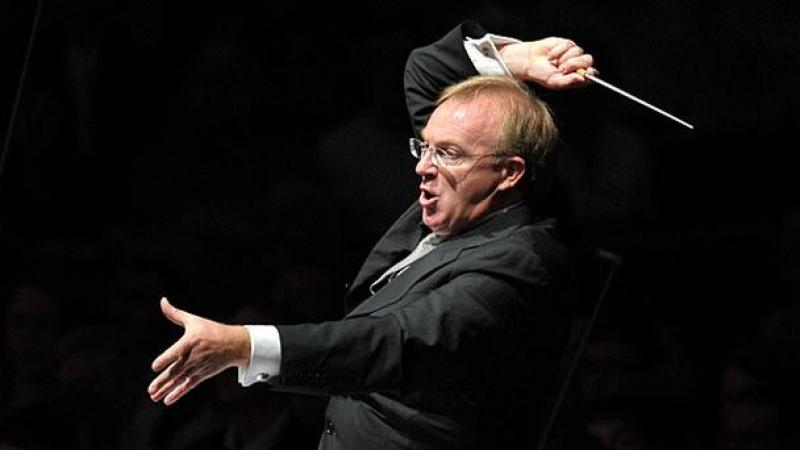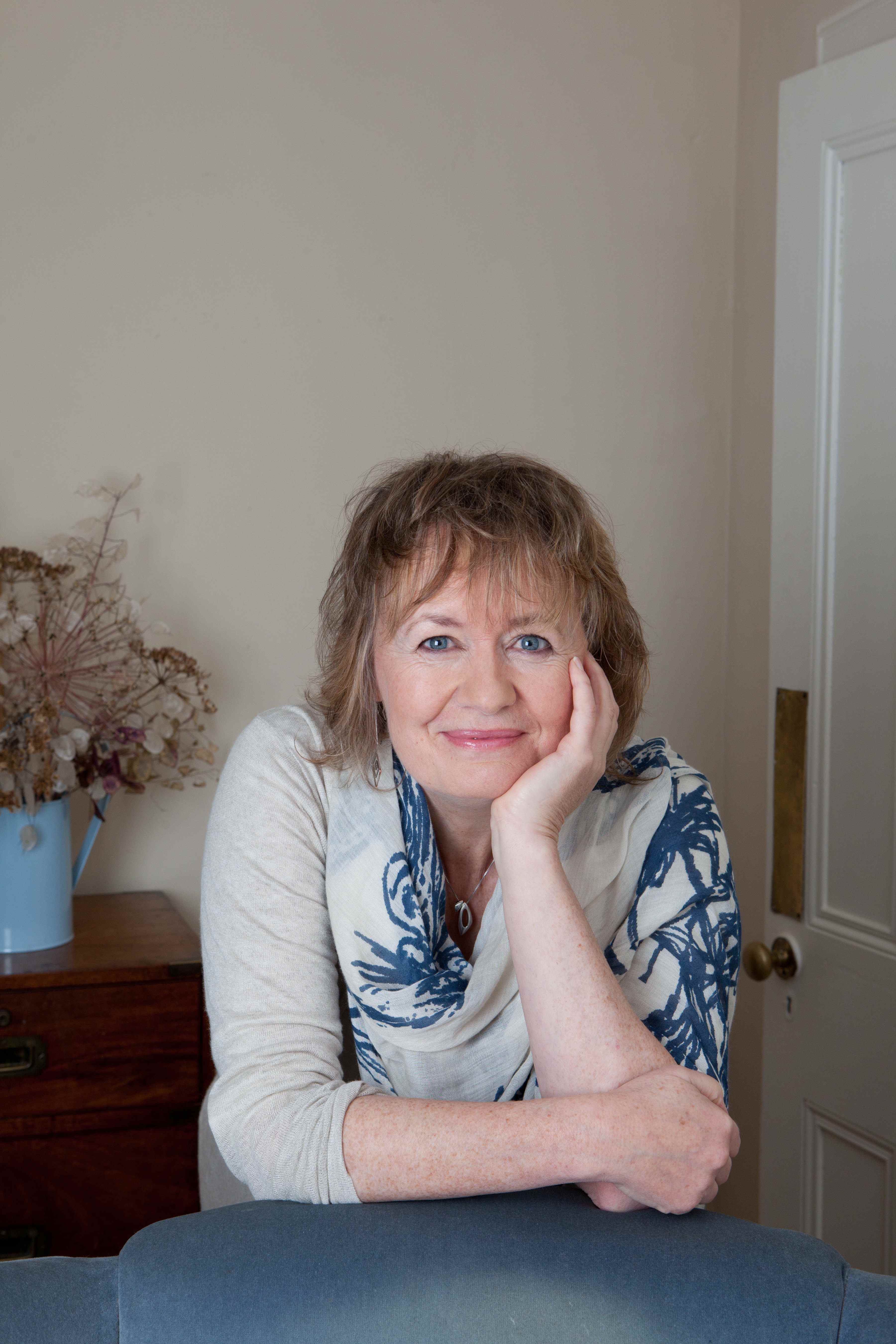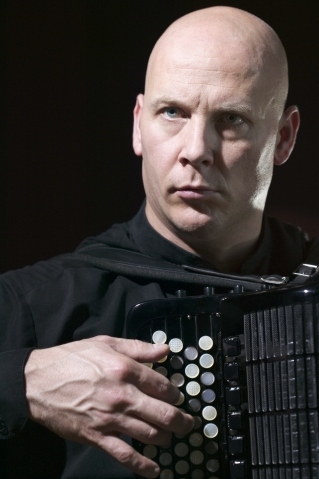Prom 20: Crabb, BBCSO, Brabbins | reviews, news & interviews
Prom 20: Crabb, BBCSO, Brabbins
Prom 20: Crabb, BBCSO, Brabbins
Sally Beamish’s accordion concerto was a last-minute replacement that thrilled and moved

The first half of last night’s Prom was supposed to be linked by the theme of the First World War, but Anthony Marwood’s illness meant that Sally Beamish’s Violin Concerto, based on All Quiet on the Western Front, had to be replaced at late notice by her accordion concerto The Singing.
After the interval came music perceptibly foreshadowing the horrors of the Second World War. Walton’s First Symphony is an extraordinary and original piece, and this interpretation by Martyn Brabbins and the BBC Symphony Orchestra captured its volcanic energy. The only pity was that the concert was so sparsely attended.
The evening opened with Ivor Gurney’s eloquent War Elegy. Gurney’s life was a tragic one (and fully explored in this BBC Building a Library podcast) in which he was gassed, shot and shell-shocked, and later succumbed to schizophrenia. Written in 1920, in a short spell between his discharge and committal, the War Elegy is a touching tribute to his lost comrades. Gurney’s output is extremely variable but here he emulates Elgar in noble vein, and the best passages are worthy of the older master. Martyn Brabbins got the pacing just right, allowing the marching bass figures to have impact without dragging, funereal but not deathly. The strings were perhaps too polished and beautiful for such an anguished work but that is a minor complaint, and the piece was largely well served and deserved its first Proms outing.
 Sally Beamish (pictured left) wrote The Singing in 2006. It starts with the accordion playing a note-less rhythm, a breathing sound which was quickly picked up by the percussion. Melody, when it comes, is inspired by Gaelic folk-music, played with infinite subtlety of tone last night by James Crabb.
Sally Beamish (pictured left) wrote The Singing in 2006. It starts with the accordion playing a note-less rhythm, a breathing sound which was quickly picked up by the percussion. Melody, when it comes, is inspired by Gaelic folk-music, played with infinite subtlety of tone last night by James Crabb.
The most notable feature of the orchestration is Beamish’s trick of turning the whole orchestra into a giant accordion, blending the soloist in high register with a fluttering piccolo, or in static moments with vibrato-less violas. The folk element persisted in the second movement, a set of variations on a captivating pibroch before the lively whirl of the finale, a fleet-footed BBCSO giving no indication of a shortage of rehearsal. The Singing is a splendid piece which Crabb (pictured below) is about to record: I shall certainly be buying the disc.
 Walton’s First Symphony crowned the evening, with its stern and vigorous response to what the composer described as the “hopelessness and chaos” of the European political situation of the 1930s. Walton struggled to create the music, finally completing it after four years’ work. The blood and sweat is not obvious in the music though, which has a momentum which carries it swiftly through its nearly 50 minutes’ duration.
Walton’s First Symphony crowned the evening, with its stern and vigorous response to what the composer described as the “hopelessness and chaos” of the European political situation of the 1930s. Walton struggled to create the music, finally completing it after four years’ work. The blood and sweat is not obvious in the music though, which has a momentum which carries it swiftly through its nearly 50 minutes’ duration.
The symphony generates extraordinary power from a modest orchestra – only double woodwind and very little percussion – and there was a dramatic thrust throughout this performance. Martyn Brabbins was an urgent presence on the podium, driving the long crescendo at the end of the first movement remorselessly. The malicious scherzo had sufficient bite but the slow movement, which started gorgeously, lost a bit of momentum in the middle. But the last movement was brisk and bracing, the large brass excelled both in full-throated chordal writing and Alan Thomas’s quizzical trumpet solos.
rating
Explore topics
Share this article
Add comment
The future of Arts Journalism
You can stop theartsdesk.com closing!
We urgently need financing to survive. Our fundraising drive has thus far raised £49,000 but we need to reach £100,000 or we will be forced to close. Please contribute here: https://gofund.me/c3f6033d
And if you can forward this information to anyone who might assist, we’d be grateful.

Subscribe to theartsdesk.com
Thank you for continuing to read our work on theartsdesk.com. For unlimited access to every article in its entirety, including our archive of more than 15,000 pieces, we're asking for £5 per month or £40 per year. We feel it's a very good deal, and hope you do too.
To take a subscription now simply click here.
And if you're looking for that extra gift for a friend or family member, why not treat them to a theartsdesk.com gift subscription?
more Classical music
 Kanneh-Mason, Britten Sinfonia, Shave, Milton Court - a grin and a big beaming smile
A pair of striking contemporary pieces alongside two old favourites
Kanneh-Mason, Britten Sinfonia, Shave, Milton Court - a grin and a big beaming smile
A pair of striking contemporary pieces alongside two old favourites
 theartsdesk at the New Ross Piano Festival - Finghin Collins’ musical rainbow
From revelatory Bach played with astounding maturity by a 22 year old to four-hand jazz
theartsdesk at the New Ross Piano Festival - Finghin Collins’ musical rainbow
From revelatory Bach played with astounding maturity by a 22 year old to four-hand jazz
 First Person: Manchester Camerata's Head of Artistic Planning Clara Marshall Cawley on questioning the status quo
Five days of free events with all sorts of audiences around Manchester starts tomorrow
First Person: Manchester Camerata's Head of Artistic Planning Clara Marshall Cawley on questioning the status quo
Five days of free events with all sorts of audiences around Manchester starts tomorrow
 Goldscheider, Brother Tree Sound, Kings Place review - music of hope from a young composer
Unusual combination of horn, strings and electronics makes for some intriguing listening
Goldscheider, Brother Tree Sound, Kings Place review - music of hope from a young composer
Unusual combination of horn, strings and electronics makes for some intriguing listening
 theartsdesk Q&A: composer Donghoon Shin on his new concerto for pianist Seong-Jin Cho
Classical music makes its debut at London's K-Music Festival
theartsdesk Q&A: composer Donghoon Shin on his new concerto for pianist Seong-Jin Cho
Classical music makes its debut at London's K-Music Festival
 Helleur-Simcock, Hallé, Wong, Bridgewater Hall, Manchester review - moving lyricism in Elgar’s concerto
Season opener brings lyrical beauty, crisp confidence and a proper Romantic wallow
Helleur-Simcock, Hallé, Wong, Bridgewater Hall, Manchester review - moving lyricism in Elgar’s concerto
Season opener brings lyrical beauty, crisp confidence and a proper Romantic wallow
 Kohout, Spence, Braun, Manchester Camerata, Huth, RNCM, Manchester review - joy, insight, imagination and unanimity
Celebration of the past with stars of the future at the Royal Northern College
Kohout, Spence, Braun, Manchester Camerata, Huth, RNCM, Manchester review - joy, insight, imagination and unanimity
Celebration of the past with stars of the future at the Royal Northern College
 Jansen, LSO, Pappano, Barbican review - profound and bracing emotional workouts
Great soloist, conductor and orchestra take Britten and Shostakovich to the edge
Jansen, LSO, Pappano, Barbican review - profound and bracing emotional workouts
Great soloist, conductor and orchestra take Britten and Shostakovich to the edge
 Jakub Hrůša and Friends in Concert, Royal Opera review - fleshcreep in two uneven halves
Bartók kept short, and a sprawling Dvořák choral ballad done as well as it could be
Jakub Hrůša and Friends in Concert, Royal Opera review - fleshcreep in two uneven halves
Bartók kept short, and a sprawling Dvořák choral ballad done as well as it could be
 Hadelich, BBC Philharmonic, Storgårds, Bridgewater Hall, Manchester review - youth, fate and pain
Prokofiev in the hands of a fine violinist has surely never sounded better
Hadelich, BBC Philharmonic, Storgårds, Bridgewater Hall, Manchester review - youth, fate and pain
Prokofiev in the hands of a fine violinist has surely never sounded better
 Monteverdi Choir, ORR, Heras-Casado, St Martin-in-the-Fields review - flames of joy and sorrow
First-rate soloists, choir and orchestra unite in a blazing Mozart Requiem
Monteverdi Choir, ORR, Heras-Casado, St Martin-in-the-Fields review - flames of joy and sorrow
First-rate soloists, choir and orchestra unite in a blazing Mozart Requiem

Comments
A correction if I may. Gurney
Thanks for the clarification,
Thanks for the clarification, Pamela. I based my comments on the BBC podcast and programme notes for the Prom. I am sorry if I have perpetuated a misunderstanding about Gurney's condition, inasmuch as it can be judged at this distance of time.